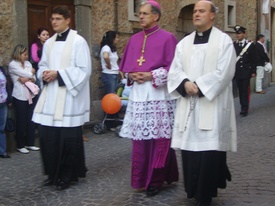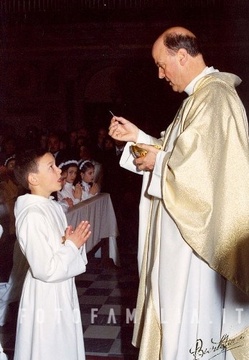The front page
of today’s New Haven Register carried an article by Jordan Fenster,
“Right-to-die bill may be discussed by legislature” by which the citizens of
Connecticut were alerted to the possibility that in the next session of the
legislature the question of assisted suicide will be on the table. Following
the defeat of Massachusetts ballot on the same subject last week, the contagion is now again flowing south. Already three US states, Oregon, Montana and Washington, allow for
physician assisted suicide. 34 states prohibit lethal doses of medication that
would end human life.
Let me say from the outset, this is not a Catholic issue. Persons of belief and unbelief ought to be concerned about the potential passing of a law that legalizes medically induced suicide. Hence, this is not a conservative issue. This is not a an anti-human dignity issue. It
is just the opposite: this is a human issue. Who we are a human beings, and how
we teach each other is a human issue that is informed by what we believe and
how we behave. Committing this legislative error is a problem of education.
Recall that in the past when a similar bill was brought to the CT voters it failed only 51-49%.
Several weeks ago there appeared in the New York Times an
intriguing OP-ED article that I believe we need to seriously consider in the
discussion of physician assisted suicide. Considering voices that differ from ours need to be thoughtfully taken into account because we are people use who reason to frame our moral lives. We can’t simply dismiss the other and therefore I appeal to people of belief and unbelief to reasonably discuss what’s at stake. When we rush the discuss without fact we always get burned.
In my opinion not enough attention has been devoted
to considering how this legislation has been lived out in this country and in
others, nor have we considered the philosophical, theological, sociological and
human consequences of such an act. Most often our heart-strings are pulled, even stretched leading us to decide weighty matters without due attention to the reality in front of us –to the person and people and intimately connected with life and death issues. We also don’t always adequately consider the eternal consequences of killing someone before natural death happens.
Who’s life are we “making dignified” by engaging death before it’s naturally
presented? What really is human dignity? What does it mean to be truly a man or
a woman in relationship with other men and women here-and-now, and following
death? To what extent does fear, anxiety and perceived suffering dictate how we
think and act toward others? Are we sufficiently aware of and sensitive to the difference between ideology and being a person, no matter how debilitated?
Here is Ben Mattlin’s October 31, 2012 New York
Times article published online.
Suicide by Choice? Not So Fast
Continue reading Connecticut lawmakers to consider physician assisted suicide

